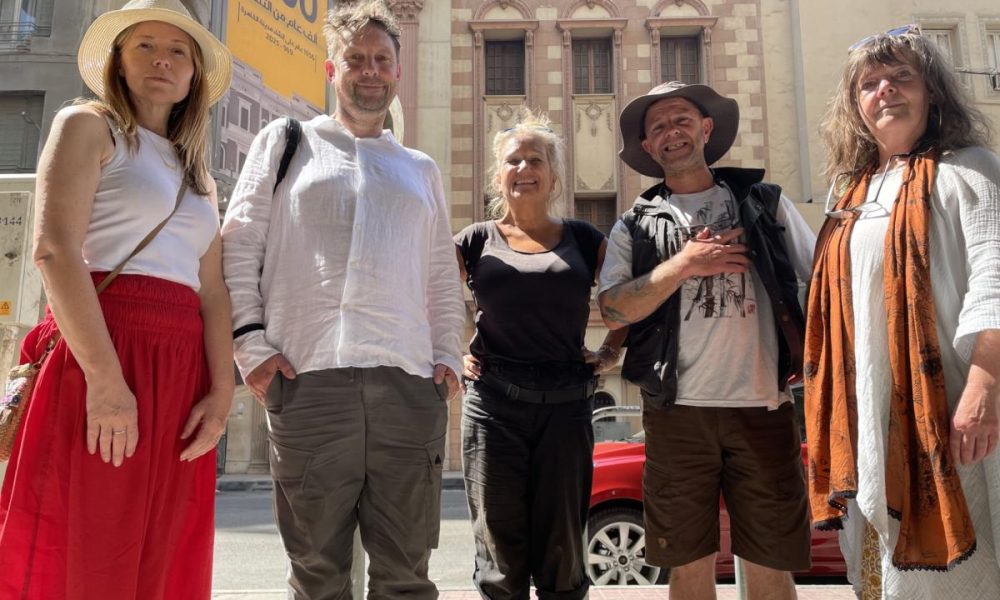Jim Scott from Mathry describes stressful journey, adapted plans, and Egyptian fears over diplomatic fallout
A PEMBROKESHIRE campaigner who travelled to Egypt this month to join the Global March to Gaza has shared his personal account of a fraught and ultimately curtailed international effort to demonstrate solidarity with Palestinians trapped under siege.
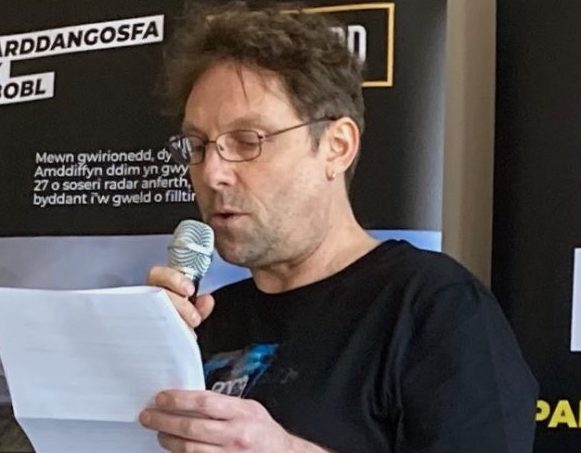 Travelled to Egypt: Campaigner Jim Scott
Travelled to Egypt: Campaigner Jim Scott
Jim Scott, from Mathry near St Davids, was among a small group of UK and Welsh activists who travelled to Cairo with the hope of reaching the Rafah crossing—via Ismailia and the Sinai desert—to hold a peaceful humanitarian presence near Gaza’s border.
The march, which attracted thousands of participants from more than 54 countries, was intended as a symbolic act calling for the unimpeded delivery of humanitarian aid into Gaza. But on the ground, Scott says, the effort quickly became complicated by shifting instructions, heavy surveillance, and growing pressure from Egyptian authorities.
“A moral imperative”
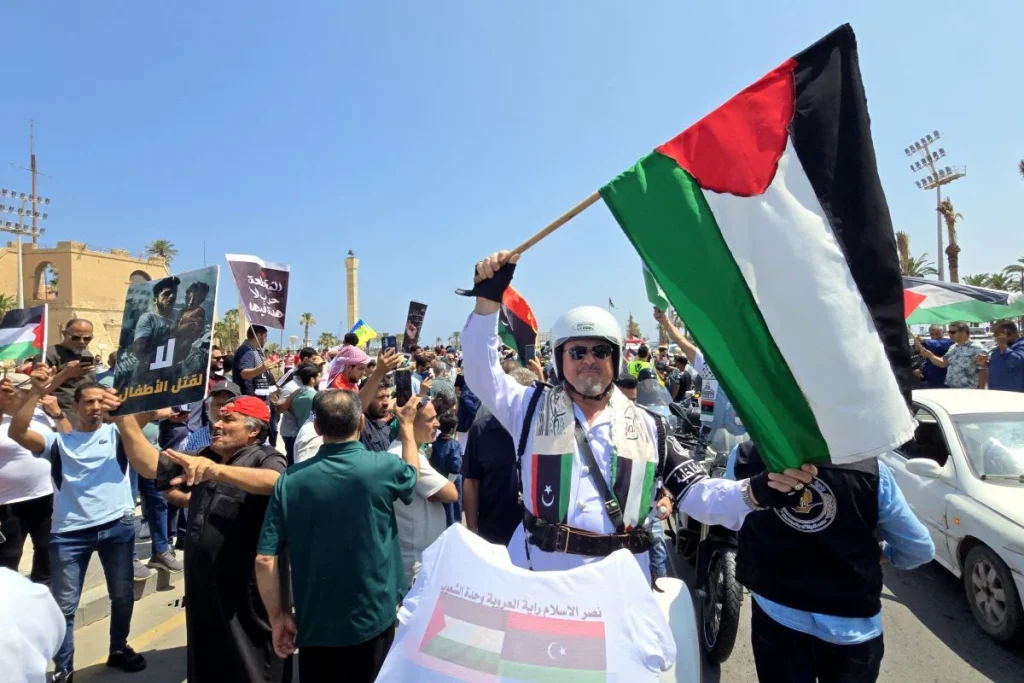
“I spent a week wrestling with the decision,” Scott told The Herald. “It felt like a moral imperative. I didn’t know if I was going or not—then I started planning, and the act of planning became part of the commitment.”
He flew to Cairo in early June and connected with other participants via local and international chat groups. At least eight to ten people from Pembrokeshire and Ceredigion, including members of CND Cymru, had joined the international delegation.
Scott said that the original plan—to take organised buses from Cairo to Al Arish and walk approximately 30 miles through the Sinai desert to Rafah—began to shift around June 13 as questions emerged about whether the Egyptian government would permit the action to proceed.
“The bus plan hadn’t disintegrated exactly—it had adapted,” he said. “There was a lot of uncertainty about whether we would be allowed to reach Rafah, so the guidance started to change.”
Changing plans and regional detours

On June 14, Scott and his travelling companion Jo Barrow—who works as a teacher in Iraq—opted to take an alternate route to Ismailia by heading north from Cairo via Zagazig, avoiding heavily monitored roads.
“We realised that taking the main highway would likely bring us into contact with checkpoints,” he said. “Our route wasn’t risk-free, but it was more discreet.”
As they travelled, group chats lit up with reports of growing interference. “From the 13th and 14th onwards, we started hearing that people were being stopped, some had their passports taken, and the situation was getting more difficult. There was fragmentation. People were getting stuck, some were being turned back.”
“No tourists permitted to remain”
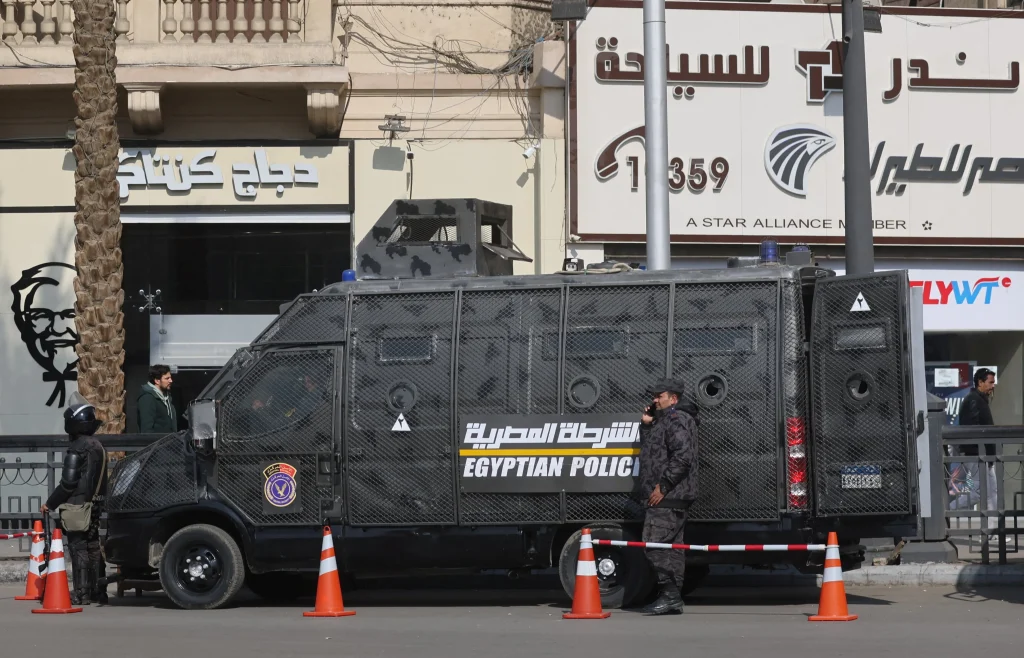
After arriving in Ismailia, the pair received location instructions for a tourist resort rumoured to be able to accommodate 4,000 marchers. But confusion and logistical disarray followed.
“We reached Ismailia after dark and ended up being redirected from our accommodation,” Scott said. “We were getting two to three hours of sleep a night. The sense of being watched hadn’t stopped.”
The next day, while near the resort, Scott and Barrow were approached by police. Initially, the officers were courteous, but then one delivered a translated message using a phone:
“I am the Egyptian police. No tourists are permitted to remain in this area. You have to go back to Cairo immediately or you will be arrested.”
They complied and were instructed to book a hotel in Cairo to confirm their travel. The pair left Ismailia and returned to the capital, where the atmosphere was becoming increasingly tense.
“By that point, UK organisers were reportedly being detained in cafés, and it was clear downtown Cairo was no longer safe,” Scott recalled. “We relocated south of the city. It was stressful—people felt they could be arrested at any moment. The surveillance was constant, and hotels were passing information to authorities.”
Egyptian fears over diplomatic fallout
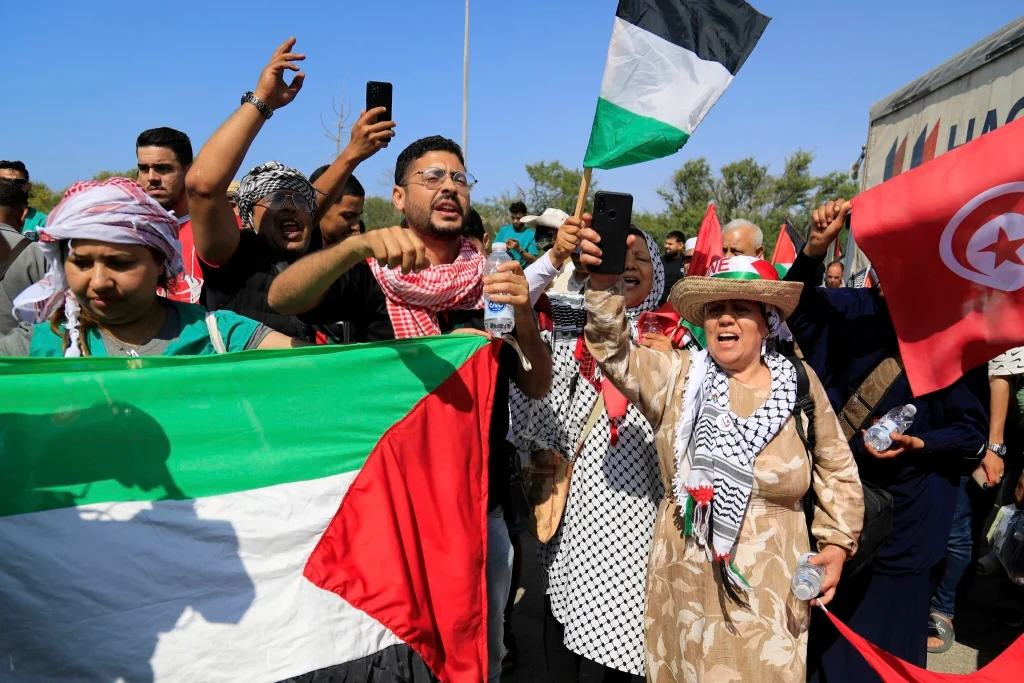
Scott said conversations with Egyptian locals offered insight into the government’s motivations.
“The word on the street from Egyptian people was that the authorities were genuinely fearful for our safety. They felt that if Israel opened fire and foreign nationals were killed, it would trigger a huge diplomatic crisis—and devastate Egypt’s tourism industry, which is vital for the country.”
He said locals acknowledged that foreign protesters were being treated more gently than Egyptian citizens would have been. “One said to me: ‘They treat you like babies compared to how they treat us.’”
According to Reuters, over 400 activists were deported and dozens more detained. The march was officially cancelled on June 16.
Scott returned to the UK on June 20. Barrow returned to Iraq the next day.
“Far more than a performative action”
Despite the disruption, Scott believes the effort had a lasting impact.
“This was far more than a performative action,” he said. “We had no choice but to act and fill a void. When governments fail to uphold international law, ordinary people have to step in.”
In a letter to Pembrokeshire MP Henry Tufnell and Eluned Morgan MS before departing, Scott wrote: “I feel I must act where you have not acted. The UK Government has failed to stop a genocide and has, in fact, been complicit by continuing to authorise arms sales and military cooperation with Israel.”
He welcomed Morgan’s later remarks acknowledging that Welsh citizens had travelled to Egypt for the march and said it was important to have that public recognition.
“For some people watching back home, it wasn’t just another protest. It was their loved ones out there. That helped build awareness in a new way.”
